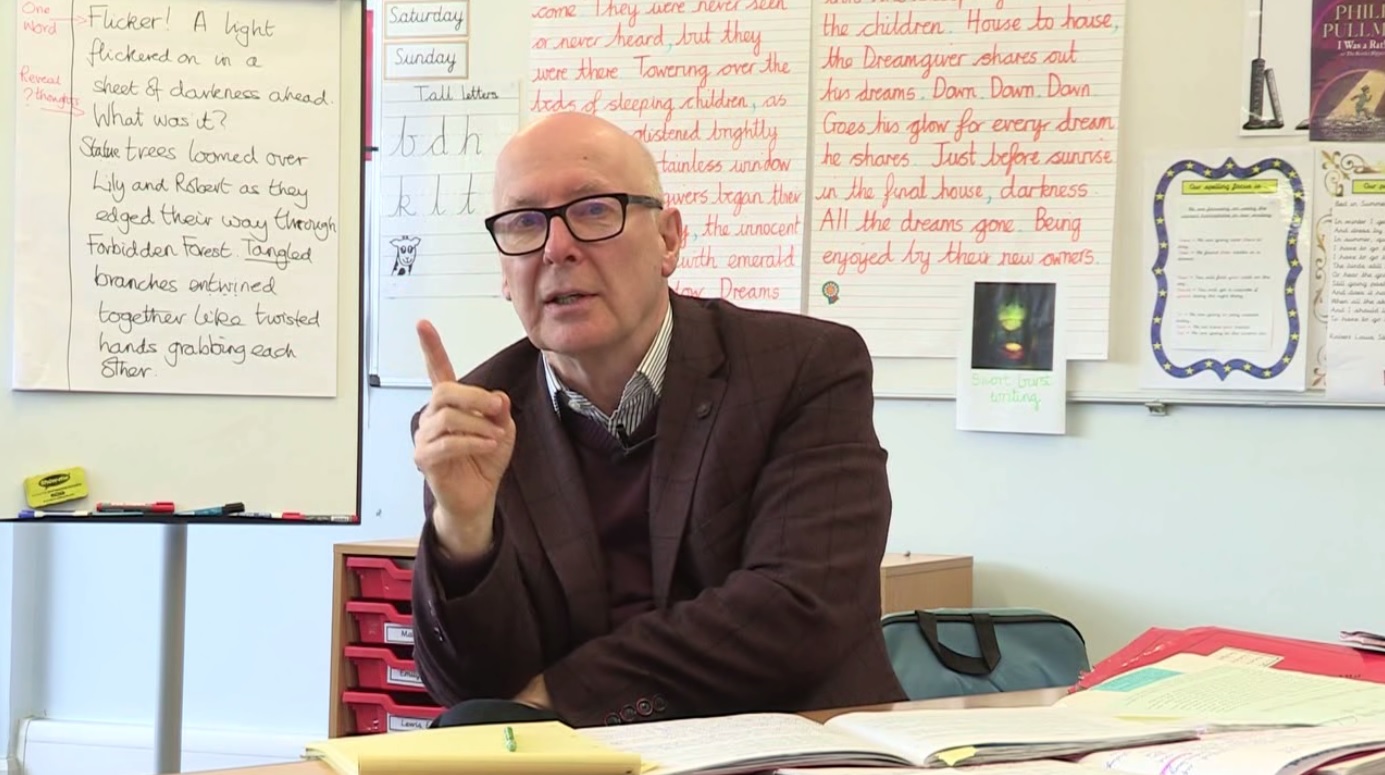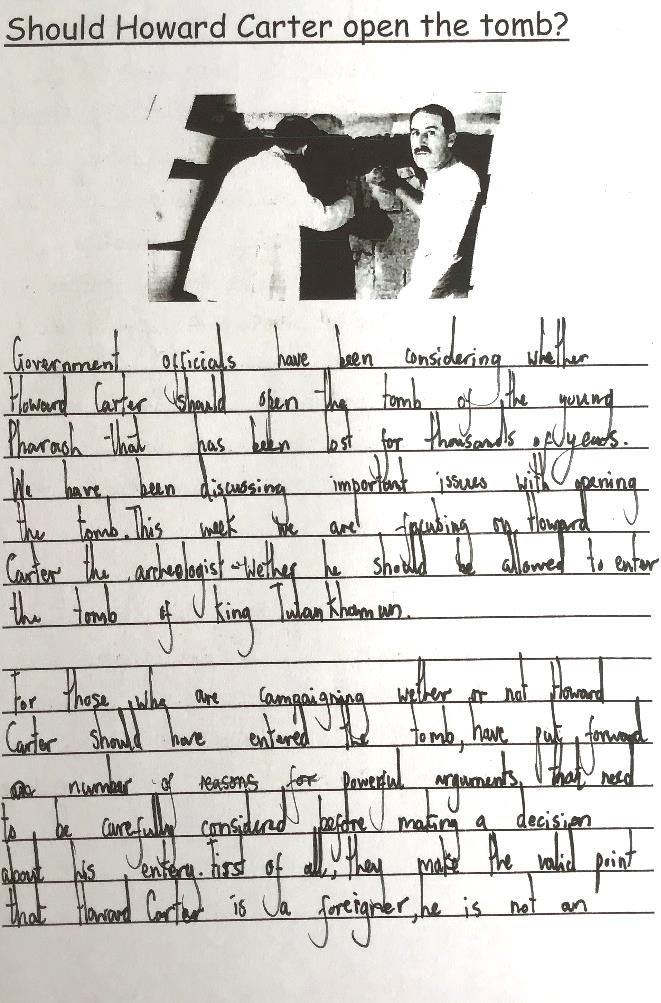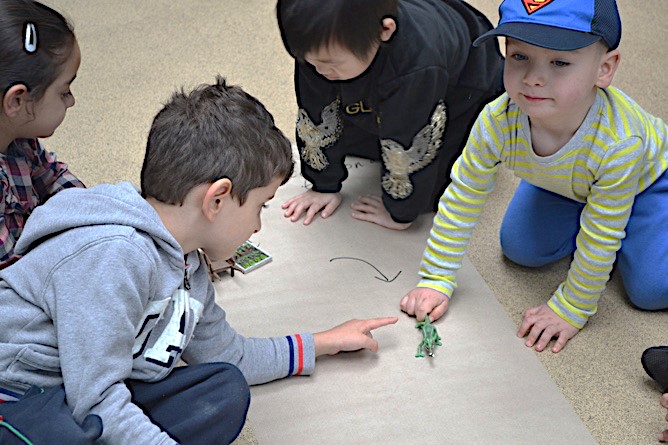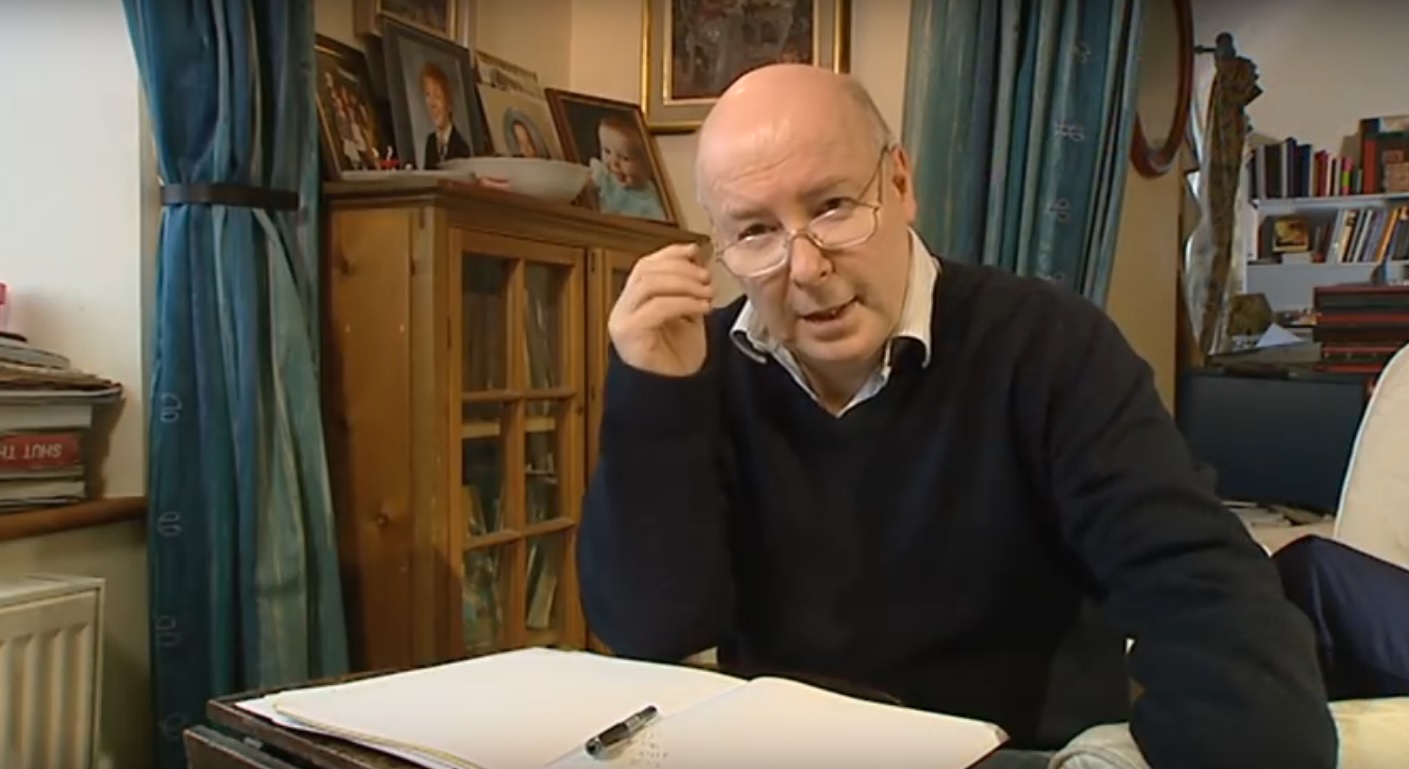In this video series, Pie Corbett answers your frequently asked questions. In this video, he outlines how teacher feedback can be used to encourage children to self edit and aid progression, as part of the Talk for Writing approach.
Pie answers your FAQs: What does ‘toolkit’ mean?
In this video series, Pie Corbett answers your frequently asked questions. Here, Pie explains what a writing ‘toolkit’ is, why it is important in the Talk for Writing approach, and how to incorporate toolkits in your planning and teaching, to better enable children to experiment with creative language and literacy devices appropriate to the purpose of their writing task.
Moving from discursive non-fiction writing in English to discursive writing across the curriculum
Upper KS2 teacher Jamie Grossmith shows how his class applied the skills they learnt about discursive writing in English to History, building their skills across a year.
Clock Close
TfW Trainer Dean Thompson has put together a brand new model text – a portal story which links to both history and geography. “There were no clocks in Clock Close…”
A new invention – inventing stories with young children
How do we guide young children to invent new stories? Jane Ralphs explains how she and Pie Corbett got the children using props and story maps to independently tell their own stories, through a project in Haringey.
Write a shape poem
Pie Corbett provides some hints and tips to help your class write a shape or observation poem. This video is taken from the Igniting Writing ‘Waterworlds’ interactive whiteboard CD-ROM.
Hook your reader toolkit
This is a guide for teachers on how to encourage pupils to write in a way that would ‘hook’ a reader.
Writing toolkits – story secrets
In this two-page document written by Pie Corbett, Pie explains how it can be useful for children to use writing toolkits when constructing a narrative. Pie focuses on using writing toolkits in these areas: 1. Characterisation and dialogue; 2. Description – people, places, objects, creatures; 3. Dilemma – suspense and action; and 4. Crafting the opening and ending.
A guide to successful class blogging
James Walker from Knowle Park Primary School in Bristol shares his tips on what he has found effective when writing blogs with his class.













